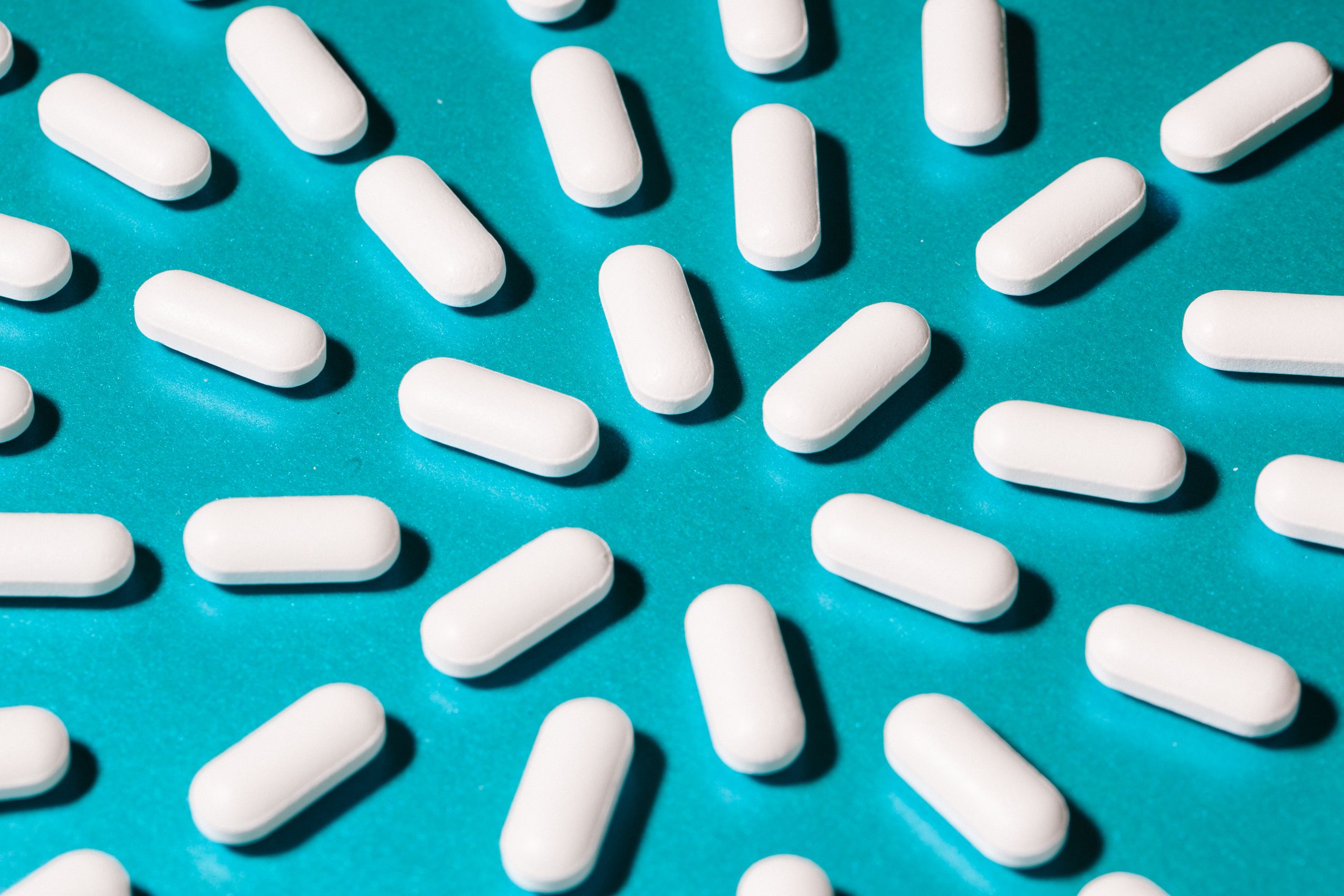VACCINATIONS IN HIS BLOOD
UH College of Pharmacy Dean F. Lamar Pritchard
is a Fourth-Generation Pharmacist
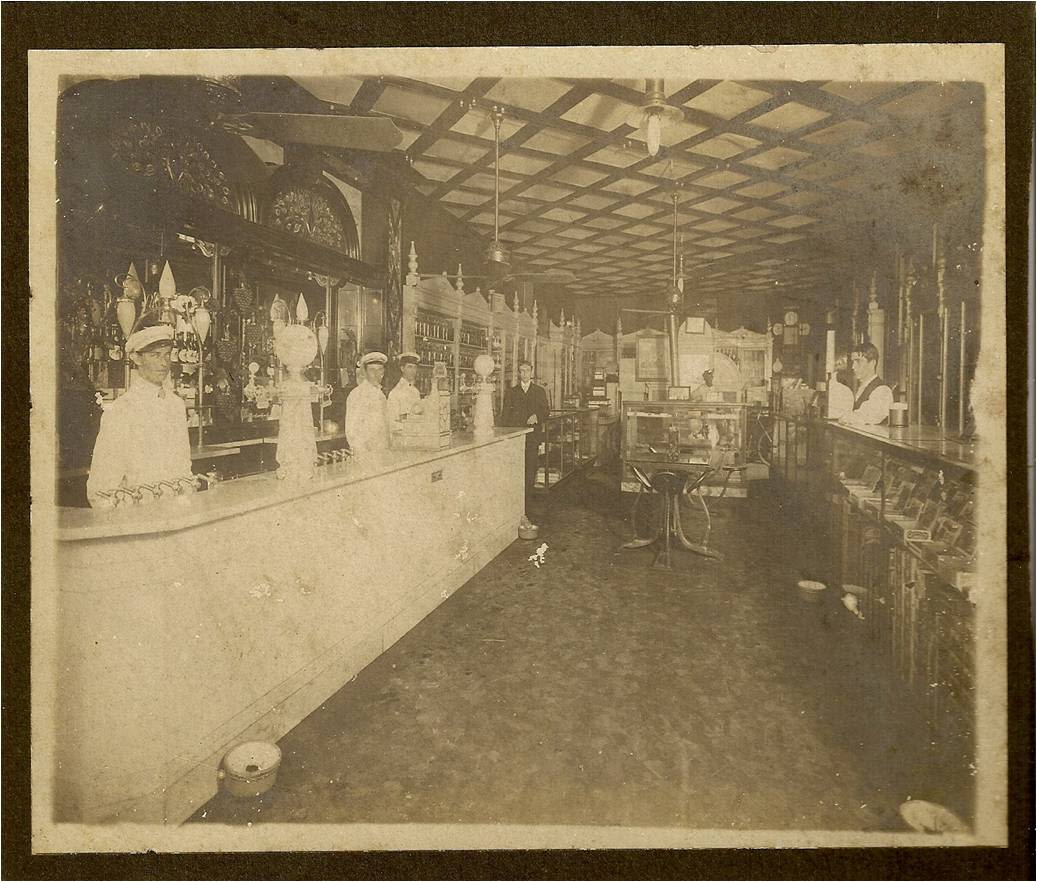
In the mid 20th century as the scourge of the polio virus did its worst to scores of children, pharmaceutical science (and Dr. Jonas Salk) brought about the polio vaccine. In its infancy it was an odd little concoction, a liquid medicine dripped into a sugar cube that kids would not shy from.
During those grim medical times, a 6-year-old boy in the heart of Southern rural Georgia, stood in line one Sunday after church, to receive his sugar cube inoculation. Holding tight to his mother’s hand, he peeked through the long line to see his father, the town pharmacist, at the end of the line, creating the sugar cubes, one drop into one cube at a time.
At that moment, little F. Lamar Pritchard, now dean of the University of Houston College of Pharmacy, Professor of Pharmaceutical Health Outcomes and Policy and Humana Endowed Dean's Chair in Pharmacy, knew what it meant to be a pharmacist, to help save lives, and as much as a 6-year-old can commit, he was all in.
His eureka moment was generations in the making. Not only was his dad a pharmacist, so was his grandad and his great grandad, too.
In the intervening years, this fourth-generation pharmacist, who would bring pharmaceutical science into the 21st century, has stood witness to and spearheaded immunizations for other deadly viruses, epidemics and pandemics, and taught generations of new pharmacists the real meaning of the job.
“When you reach out to your communities and come from behind the counter, you’re a real person, you are not just an enigma in a white coat, you become a friend, and that’s when patients open up and you’re able to impact their health care to a tremendous degree,” said Pritchard.
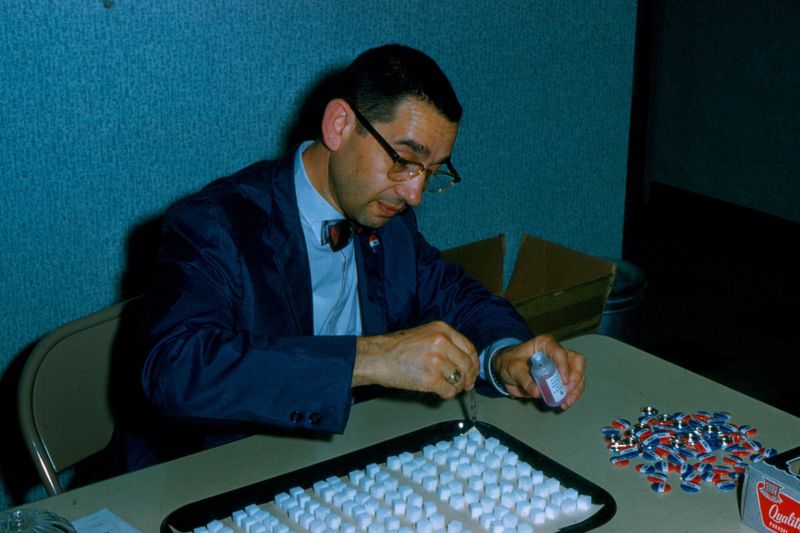
In 1961 a pharmacist drops the oral polio vaccine on sugar cubes. Photo courtesy: Centers for Disease Control and Prevention, The Global Health Chronicles
In 1961 a pharmacist drops the oral polio vaccine on sugar cubes. Photo courtesy: Centers for Disease Control and Prevention, The Global Health Chronicles
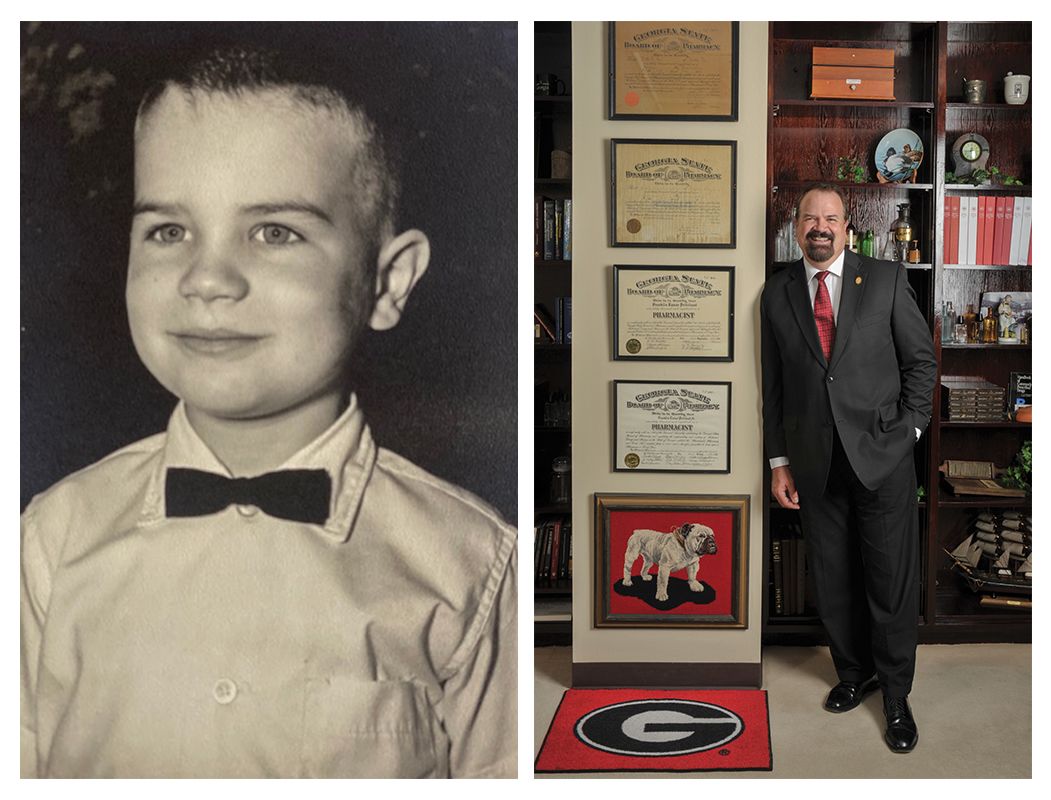
Dean F. Lamar Pritchard at six and, at right, in his office standing beside four generations of his family's Georgia pharmacist licenses.
Dean F. Lamar Pritchard at six and, at right, in his office standing beside four generations of his family's Georgia pharmacist licenses.
In the community
Pritchard’s philosophy has served him – and his community – well, as he has mobilized pharmacy students to be first-line responders, immunizing thousands of people.
In 2009, during the H1N1 pandemic, the UH College of Pharmacy joined with Harris County Public Health and Environmental Services to deliver approximately 9,000 H1N1 flu immunizations at four clinic sites across the county.
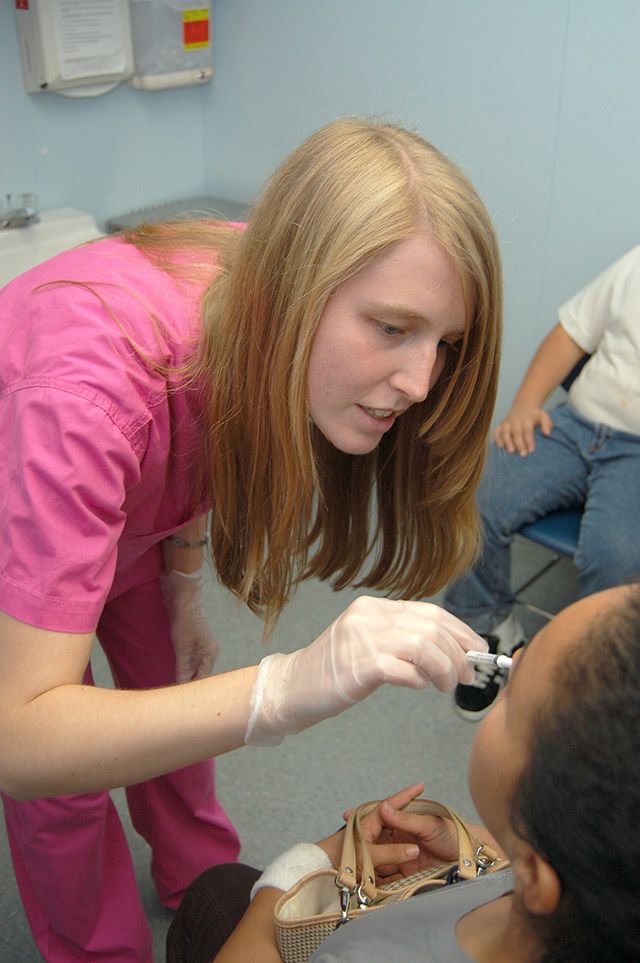
Mallory Gessner-Wharton providing an intra-nasal immunization to a patient in 2009 during the H1N1 pandemic. She was a UH College of Pharmacy student then; now she’s pharmacy director at Kingwood Medical Center.
Mallory Gessner-Wharton providing an intra-nasal immunization to a patient in 2009 during the H1N1 pandemic. She was a UH College of Pharmacy student then; now she’s pharmacy director at Kingwood Medical Center.
The collaborative effort included more than 50 third- and fourth year Pharm.D. students and nearly a dozen faculty, alumni and affiliated resident preceptors working in five-hour shifts over the four-day period.
Given the reputation that the UH College of Pharmacy aggressively seeks to help the community, Pritchard has been working with city, county and private sector companies to keep up with the enormous demand for administering COVID-19 vaccines.
“It’s going to take all hands-on deck to assist with the mass immunizations, and we are coming together to fight it. Our pharmacy students are going through their educational process in a very interesting time and they have the opportunity to effect lives like we’ve never seen before,” said Pritchard.
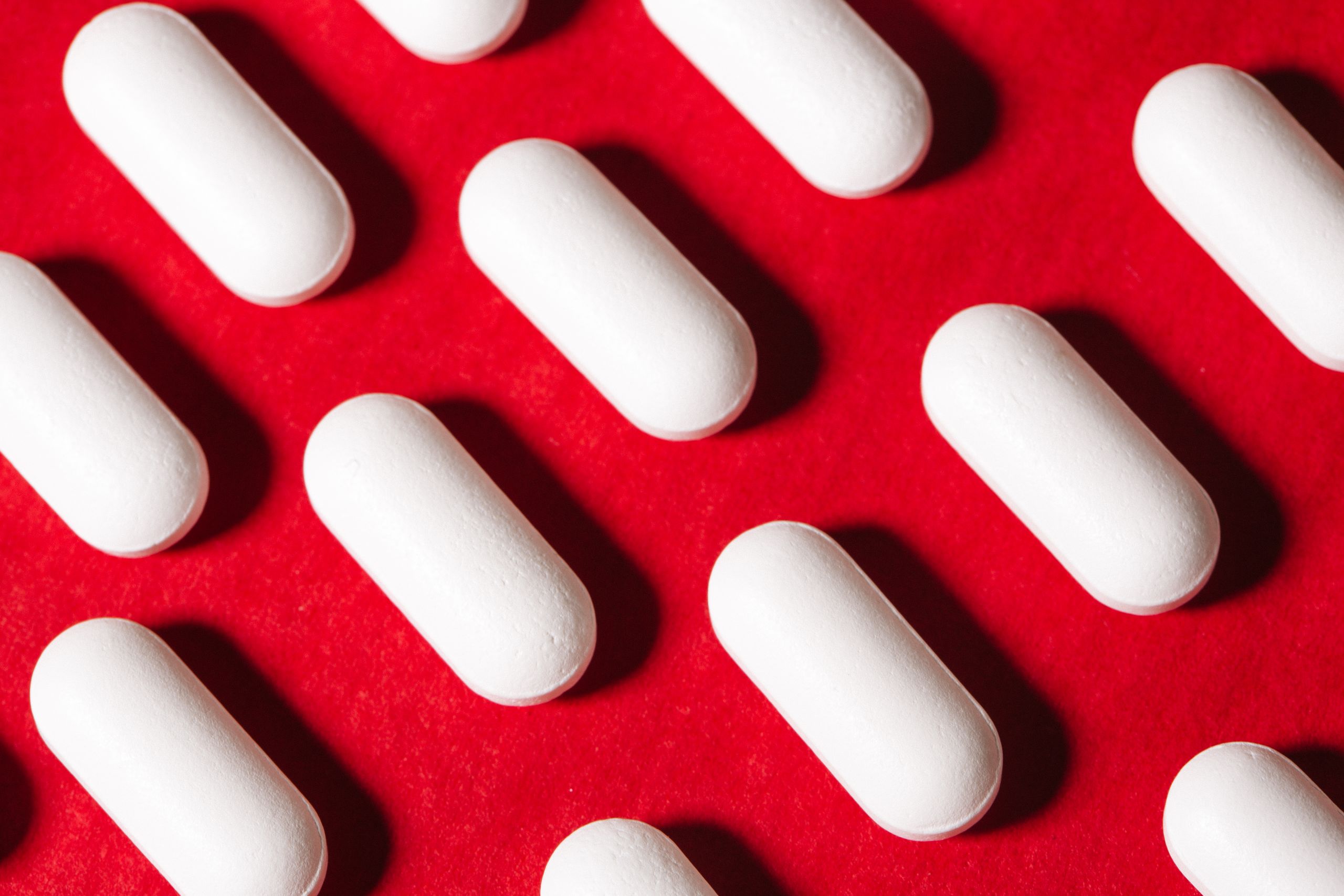
At least 6,000 lives
As the deadly coronavirus was making history across the globe so, too, was the University of Houston College of Pharmacy - Rio Grande Valley as faculty, preceptors and students participated in DHR Health’s COVID-19 mass vaccination campaign.
“It was truly a historic experience for all involved. We were able to vaccinate close to 6000 employees and neighboring healthcare professionals in unprecedented time - approximately four days,” said Ron Ozuna, assistant dean, University of Houston College of Pharmacy - Rio Grande Valley.
“The Rio Grande Valley effort reminds me so much of where I grew up,” said Pritchard, who expanded the UH College of Pharmacy to the valley under his tenure. “It’s got a small-town feel, but it’s one of the fastest growing areas in the country and it has some of the greatest needs and one of the highest COVID-positive rates in the state. We are providing health access to a community in great need."
In Houston, UH College of Pharmacy students have taken up their positions on the front lines, too, volunteering to administer COVID vaccinations at the mass inoculation event at NRG Park.
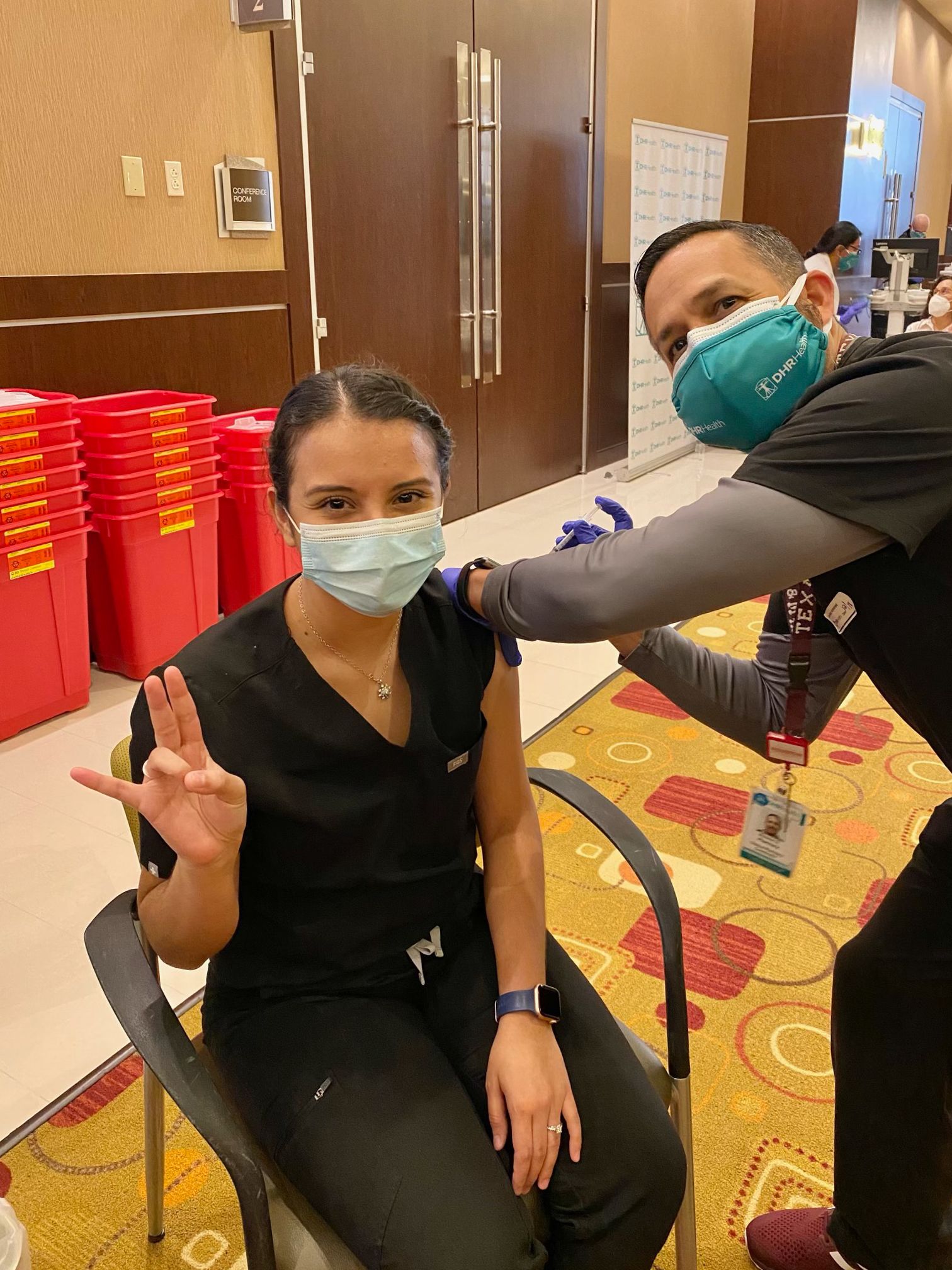
Ron Ozuna, right, assistant dean of the UH College of Pharmacy Rio Grande Valley Pharm.D. Satellite Program, provides a COVID-19 immunization to UHCOP Pharm.D. candidate Nancy Aldape at an immunization clinic hosted by college partner, Edinburg-based health system DHR Health.
Ron Ozuna, right, assistant dean of the UH College of Pharmacy Rio Grande Valley Pharm.D. Satellite Program, provides a COVID-19 immunization to UHCOP Pharm.D. candidate Nancy Aldape at an immunization clinic hosted by college partner, Edinburg-based health system DHR Health.
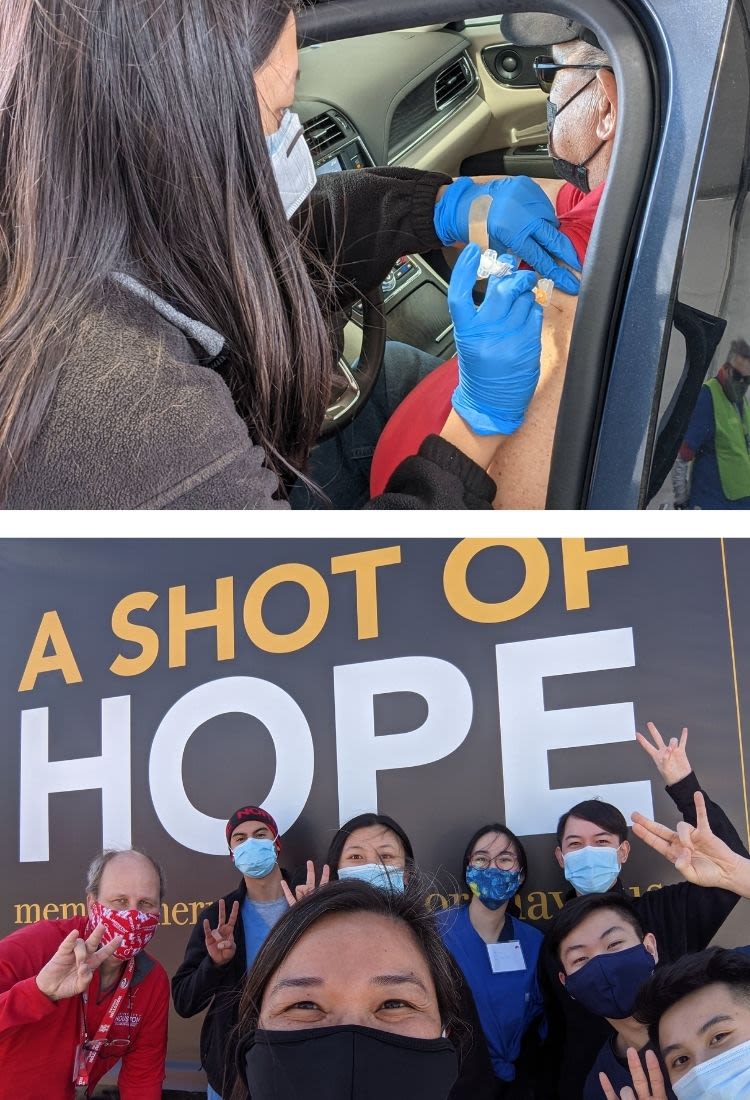
UH College of Pharmacy Pharm.D. student Catherine Vu is pictured delivering a COVID-19 immunization to one of more than 14,000 vaccine recipients at Memorial Hermann Health System’s NRG Park drive-through clinic. More than a dozen UHCOP Pharm.D. students and five faculty members volunteered to work at the NRG drive-through clinic between Jan. 14 and Jan. 17.
UH College of Pharmacy Pharm.D. student Catherine Vu is pictured delivering a COVID-19 immunization to one of more than 14,000 vaccine recipients at Memorial Hermann Health System’s NRG Park drive-through clinic. More than a dozen UHCOP Pharm.D. students and five faculty members volunteered to work at the NRG drive-through clinic between Jan. 14 and Jan. 17.
RX for success
Opening additional satellite campuses is but one of Dean Pritchard’s goals. Opening the UH Drug Discovery Institute in 2020 was another.
The institute – UH’s eighth University-wide research center – is a partnership between the UH colleges of Pharmacy, Natural Sciences and Mathematics and Cullen College of Engineering, in equal measure, with faculty affiliations from several other colleges. Its goal is to integrate new technologies, such as artificial intelligence, to streamline and modernize the drug-discovery process.
“Health care has become so much more complex and the knowledge base within the profession increases exponentially each year,” said Pritchard. “No longer are these blockbuster drugs that treat the entire population going to be the mainstay. We know there’s so many differences, or polymorphisms, between patients. For instance, the optimal blood pressure medication to control my blood pressure may be totally different than the optimal one for you, based on your genetics and genomics. We have to do an enormous amount of research to optimize drug medication therapy now.”
Though pharmaceutical science has become more complicated, that kind of personalized experience sounds a lot like what Pritchard’s 19th and 20th century pharmacist ancestors provided.
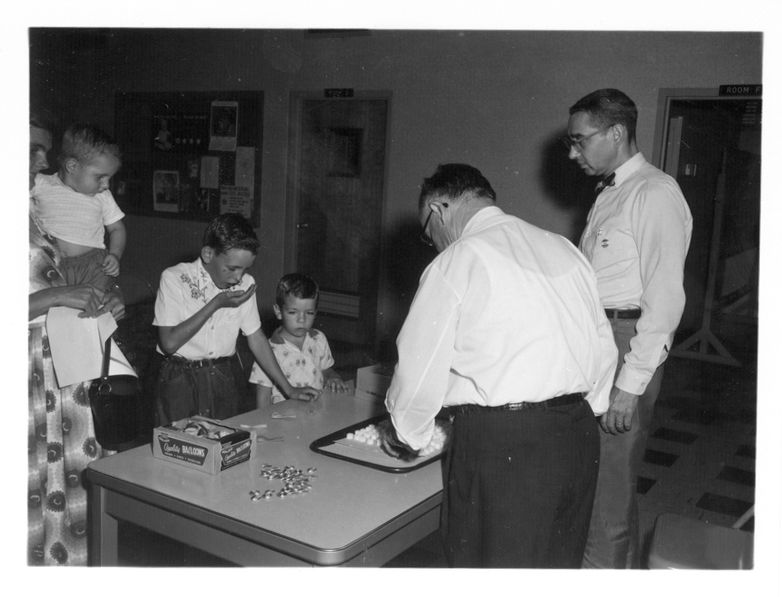
From around 1963, a young boy receives the oral polio vaccine during a vaccination campaign in Atlanta, Georgia. Photo courtesy: Centers for Disease Control and Prevention, The Global Health Chronicles
From around 1963, a young boy receives the oral polio vaccine during a vaccination campaign in Atlanta, Georgia. Photo courtesy: Centers for Disease Control and Prevention, The Global Health Chronicles
“My great granddad and grandad had to make most medications from scratch. There were very few pre-made, patented medications, so they were extracting a lot of therapies from natural products and raw materials stored at the pharmacy. The pharmacy would be open until midnight sometimes waiting for the extract to be completed because a sick baby needed the medication.”
Now that’s personalized medicine.
